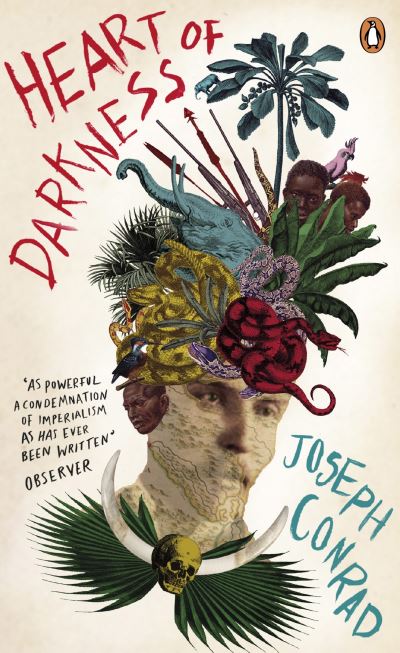LoveReading Says
Written more than a century ago, this absolutely timeless book and its underlying themes hold just as much significance today. Intense and compelling, Heart of Darkness looks into the darkest recesses of human nature and Conrad takes the reader through a horrific tale in a very gripping voice.
Conrad’s novella is about a voyage up the Congo River into the Congo Free State, in the heart of Africa, by the story's narrator Charles Marlow. Marlow tells his story to friends aboard a boat anchored on the River Thames.
In little over 100 pages, Conrad explores the darkness in men's hearts as Marlow narrates his travels up the Congo toward his appointment with the steamboat and with fate, in the form of Kurtz, the megalomaniac manager of an ivory trading station. This story is incredibly clever, profound and full of layered descriptions, symbolism and double meanings. It’s a must-read and an absolute certainty for our top 50 classics.
Visit our '50 Classics Everyone Should Read' collection to discover more classic titles.
LoveReading
Find This Book In
Heart of Darkness Synopsis
'Hunters for gold or pursuers of fame, they all had gone out on that stream, bearing the sword, and often the torch, messengers of the might within the land, bearers of a spark from the sacred fire.'
Marlow, a seaman, tells of a journey up the Congo. His goal is the troubled European and ivory trader Kurtz. Worshipped and feared by invaders as well as natives, Kurtz has become a godlike figure, his presence pervading the jungle like a thick, obscuring mist. As his boat labours further upstream, closer and closer to Kurtz's extraordinary and terrible domain, so Marlow finds his faith in himself and civilization crumbling.
About This Edition
About Joseph Conrad
Joseph Conrad was born in the Ukraine in 1857 and grew up under Tsarist autocracy. In 1874 Conrad travelled to Marseilles, where he served in French merchant vessels before joining a British ship in 1878 as an apprentice. In 1886 he obtained British nationality. Eight years later he left the sea to devote himself to writing, publishing his first novel, Almayer's Folly, in 1895. The following year he settled in Kent, where he produced within fifteen years such modern classics as Youth, Heart of Darkness, Lord Jim, Typhoon, Nostromo, The Secret Agent and Under Western Eyes. He continued to write until his death in 1924. J. H. Stape is the author of The Several Lives of Joseph Conrad (1996) and Conrad's Notes on Life and Letters (2004).
More About Joseph Conrad
